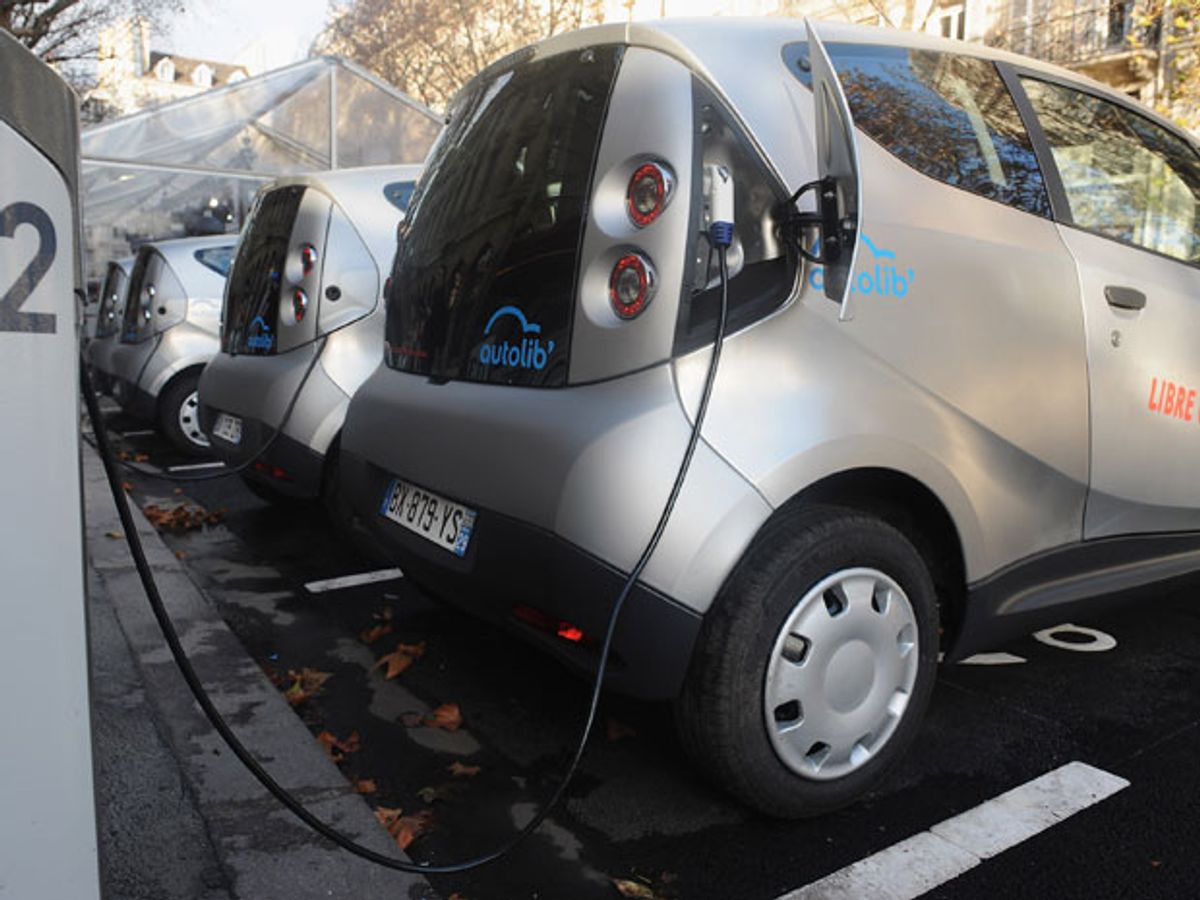Intrigue on the streets of Paris. Two German automakers stand accused of industrial espionage after France's digital crimes squad and counter-espionage agents scooped up two German nationals jacking into a French electric vehicle (EV) network. This isn't the latest international crime thriller, and Matt Damon will not be making an appearance. This is la vraie vie in which European automakers, entrepreneurs, and governments step up investment in electric mobility, and rising stakes beget rising tensions.
Last week France's Paris-based IT crimes squad—the brigade d'enquêtes sur les fraudes aux technologies de l'information—arrested two German men who claimed to be working for automaker BMW, according to reporting by French daily Le Figaro. The pair, employees of Aachen-based engineering firm P3-Group, were caught tampering with charging stations belonging to Autolib, the Paris-based EV car sharing program. France's counter-espionage organization, the DCRI, is also on the case, adds Le Figaro.
This week, Bolloré, the French industrial firm that created and operates Autolib, filed suit in Paris charging P3-Group with industrial espionage. Its complaint claims that the P3-Group technicians plugged unauthorized electronic equipment into Autolib charging stations.
Autolib provides swipe-and-go access to 1800 small electric cars at any of 4000 charging stations in the Paris metro area. As we report in the current issue of IEEE Spectrum, Autolib is easy to use, affordable, and popular, and the concept is spreading. Paris mayor Bertrand Delanoë yesterday tweeted the announcement that Autolib had registered its 100 000th subscriber since its December 2011 launch.
Bolloré aims to push the car sharing program worldwide. Today it announced a partnership with French automaker Renault to accelerate the international rollout based on the systems Bolloré developed for Autolib. Most notable are the innovative lithium metal polymer batteries that power its EVs and the proprietary tracking and scheduling systems that coordinate the car sharing network.
German automakers recently stepped up investment in EVs, after relying almost exclusively on diesel engines to meet demand for higher fuel efficiency. BMW also operates a car sharing program that includes a growing number of EVs.
As for the alleged intellectual property theft, BMW's response has been shifting, according to Paris-based news channel TF1. The company initially denied conducting or ordering tests on Autolib, then issued a statement earlier this week admitting it hired P3-Group but denying the spying charge. P3-Group's activities are, it says, part of "routine" testing intended to ensure that BMW's EVs are compatible with charging stations across Europe.
French media this week added Volkswagen to what they've dubbed Affaire Autolib. VW admitted that it too had engaged P3-Group to test Autolib's system, according to Le Figaro. As with BMW, the Wolfsburg-based automaker denied that it was spying, calling the testing "entirely normal." At this week's Frankfurt Auto Show, Volkswagen announced an agressive EV ramp up that CEO Martin Winterkorn vowed would deliver "market leadership in electric mobility" by 2018.
Photo: Antoine Antoniol / Getty Images
Peter Fairley has been tracking energy technologies and their environmental implications globally for over two decades, charting engineering and policy innovations that could slash dependence on fossil fuels and the political forces fighting them. He has been a Contributing Editor with IEEE Spectrum since 2003.



